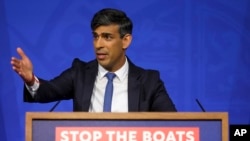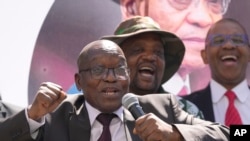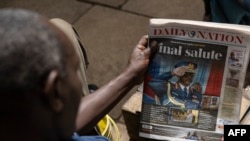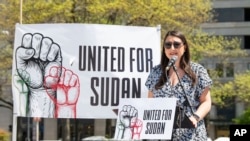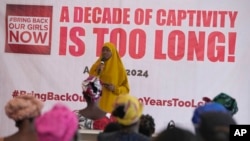Conflict
DRC Rape, Torture, Abductions Worsen: UN
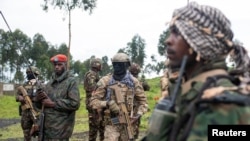
A UN report on conflict in eastern DRC points out scores of killings, along with torture, rapes, and abductions perpetrated against civilians. And the M23 insurgent group gets blamed.
The 21-page UN report — based on interviews with more than 230 sources and visits to the Rutshuru area of Congo's North Kivu province, where the insurgent M23 movement has seized territory — is expected to be published this week.
The accounts are haunting. Abductions, torture, rapes. Scores of civilians, including women and children, have been killed by the M23 rebels in eastern DRC.
The M23 rebels have forced children to be soldiers, according to the report by a panel of U.N. experts.
Populations living under M23 not only are subject to abuse but are forced to pay taxes, the panel said. At the Bunagana border crossing with Uganda, the rebels earned an average of $27,000 a month making people carrying goods pay as they entered and left the country, the U.N. said.
Two locals living under M23 who did not want to be named for fear of their safety told The Associated Press they had been forced to bring the rebels bags of beans, pay $5 if they wanted to access their farms and take backroads if they wanted to leave the village for fear of reprisal.
The M23 did not respond to questions about the allegations but has previously dismissed it as propaganda.
Almost 6 million people are internally displaced in Congo, with more than 450,000 displaced in North Kivu province, since clashes escalated in February. Hundreds of thousands are facing extreme food insecurity, and disease is spreading, aid groups say. Cholera cases are spiking in Nyiragongo, a region hosting many of the displaced people in North Kivu, with more than 970 cases discovered in recent weeks, said Save The Children.
The violence by the rebels is part of an overall worsening of the crisis in eastern Congo, with fighting by armed groups intensifying and expanding in the North Kivu and Ituri provinces, said the report.
"The security and humanitarian situation in North Kivu and Ituri Provinces significantly deteriorated, despite the continuous enforcement of a state of siege over the past 18 months," and despite military operations by Congo's armed forces, Uganda's military and the U.N. mission in Congo, the report said.
Adding to the difficult situation in eastern Congo, attacks by the Allied Democratic Forces — believed to be linked with the Islamic State group — are increasing, the report said, and a nearly yearlong joint operation by Uganda's and Congo's armies "has not yet yielded the expected results of defeating or substantially weakening the ADF."
Since April, according to the report, ADF attacks killed at least 370 civilians, and several hundred more were abducted, including a significant number of children. The group also extended its area of operations to Goma and into the neighboring Ituri province.
Efforts to stem the violence have yielded little results.
A new regional force deployed to eastern Congo is facing pushback from residents who say they do not want more armed groups in the area. Tensions are also rising with DRC's neighbor Rwanda, which it accuses of supporting the M23 rebels, findings backed by the U.N. but strenuously denied by Kigali.




